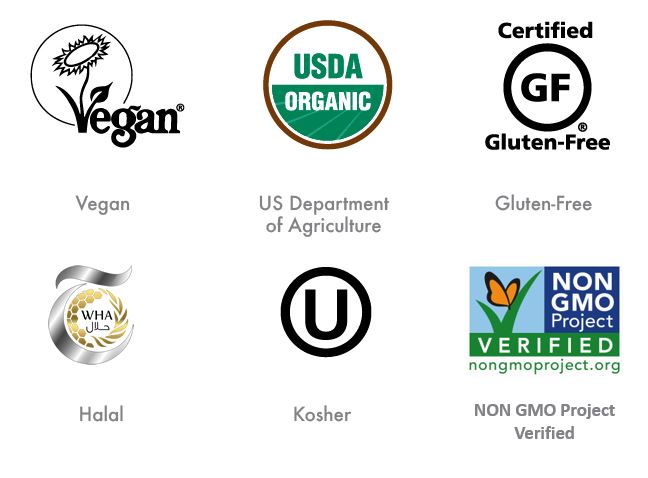What Organic and Non-GMO Certifications Really Mean
Why you should care about organic and non-GMO certifications
Consumers want pure organic food and non-GMO products. And, they want to be sure that’s what they’re getting. Here’s why organic and non-GMO certifications are essential.
“Organic” and “non-GMO” are terms tossed around in the food industry regularly. You’ve heard of both, but do you know what does it really means for products to be certified as organic or non-GMO? Here’s what organic and non-GMO certifications really mean for food suppliers as well as consumers:
Organic Certifications
An organic certification allows you to sell, label, and represent your products as organic. According to the United States Department of Agriculture (USDA), “organic certification verifies that your farm or handling facility located anywhere in the world complies with the USDA organic regulations.”
For a manufacturer to become certified, and for their organic food to qualify as such, the manufacturer or farm must apply to a USDA-accredited certifying agent. According to the USDA, these agents will ask you the following:
- A detailed description of the operation to be certified.
- A history of substances applied to land during the previous three years.
- The organic products grown, raised, or processed.
- A written Organic System Plan describing the practices and substances to be used.
Crops, livestock, processed products, and wild crops can all be certified organic products.

Non-GMO Certifications
To receive the non-GMO seal, farms and manufacturers must get their products non-GMO verified by going through the Non-GMO Project Product Verification Program. The project is North America’s only third-party verification for non-GMO food and products, according to the Non-GMO Project.
To become non-GMO verified by the organization, those in the food industry must work with a third-party certified, or Technical Administrator, to evaluate any given products.
According to the Non-GMO Project, on average, the process to get verified will take about three to six months. The duration of the process will depend on the attributes of a product and how quickly the required documentation for a product evaluation is submitted.
Why it Matters
Organic and non-GMO certifications are two of the top certifications for food suppliers to hold. So, why does it really matter, and what do these certifications mean to consumers?
Aside from organic farming practices being good for the environment, pure organic products have their perks for suppliers as well. The number of consumers looking for and choosing organic products continues to grow. Because of this, becoming certified organic helps producers and handlers make profits from their products at premium rates, and it’s a great way to market products to consumers.
When it comes to non-GMO products, consumers are looking for those as well. According to a Consumer Reports National Research Center survey, more than 70 percent of Americans say they don’t want genetically modified organisms in their food. With this information, it’s no surprise that an independent study by Consumer Reports also found that the Non-GMO Project Verified seal was the only label that was “highly meaningful” for consumers wanting to avoid GMOs in products.
With the organic certified and Non-GMO Project Verified seals comes credibility. This credibility allows products to reach a larger amount of consumers and also assures those consumers of those products’ quality.
Stay tuned and follow Germinal Organic on LinkedIn for more consumer and industry insights.
